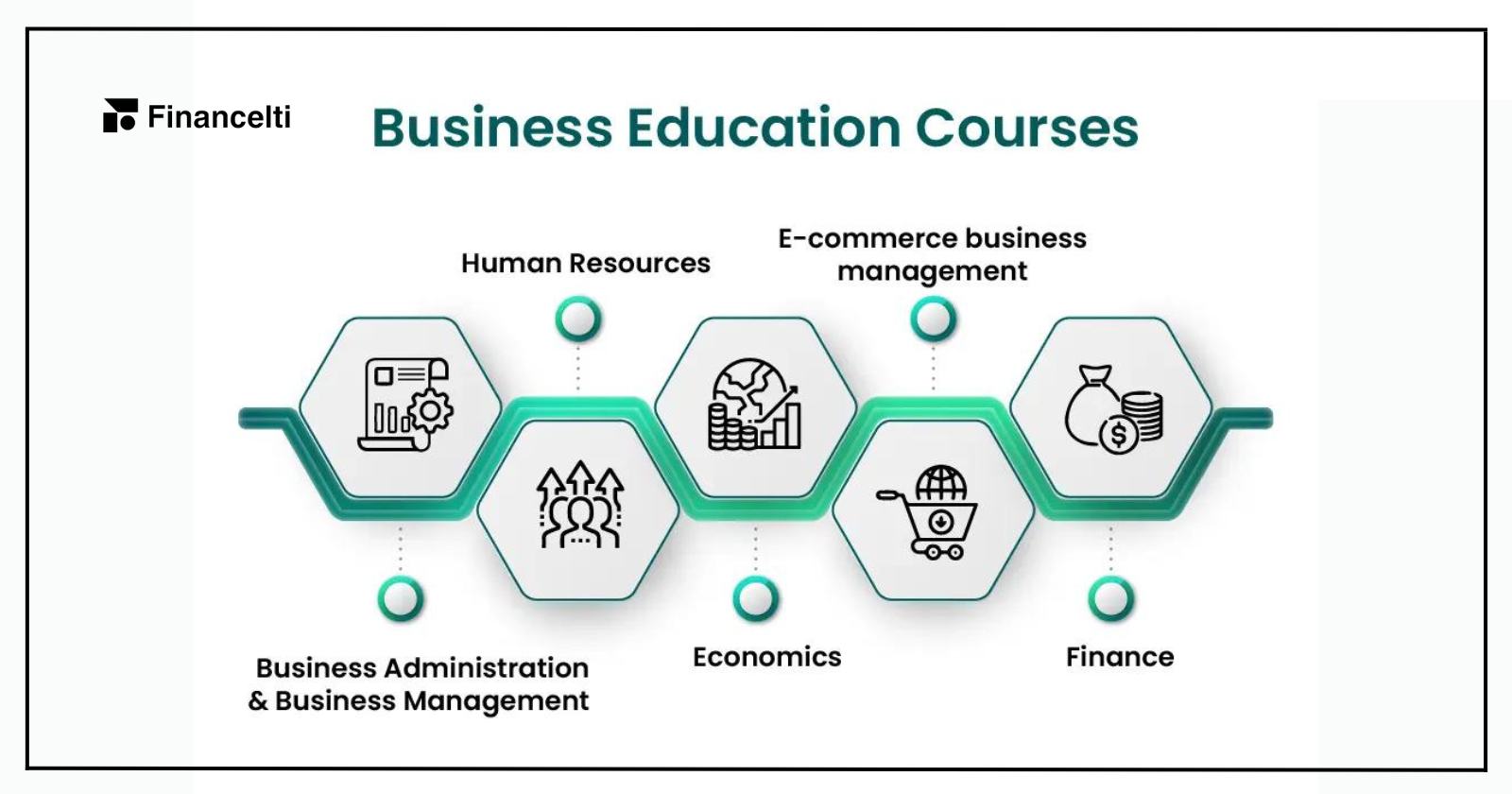Business education is a dynamic field that encompasses a wide range of methods for teaching students the fundamental principles and practices of the business world. From traditional degree programs to online classes, there are various avenues through which individuals can gain knowledge and skills in areas such as business administration, human resources, e-commerce management, economics, finance, and more. In this comprehensive guide, we will explore the different types of business education programs and the key functional areas and skills that are essential for success in the business world. Explore More.
Table of Contents
Traditional Academic Business Education Programs
One of the most common paths for individuals seeking a business education is through traditional academic degree programs. These programs, offered by colleges and universities, provide students with a solid foundation in the principles and practices of business. Courses typically cover subjects such as management, marketing, accounting, ethics, and more. Students can earn a variety of degrees, ranging from an Associate degree to a Ph.D. in Business Administration. These programs provide a broad understanding of the business landscape and prepare students for a wide range of career opportunities.
Online Programs In Business Education
In recent years, online business education programs have gained popularity due to their flexibility and accessibility. These programs offer students the opportunity to learn at their own pace and from the comfort of their own homes. Online courses cover similar topics as traditional academic programs, including management, marketing, finance, and more. The main difference is the mode of delivery, as online programs utilize digital platforms and resources to deliver course content. Online business education programs are a great option for individuals who require flexibility in their learning schedule or who are unable to attend traditional classes.
School-to-Work Opportunity Programs
School-to-work opportunity programs are designed to provide students with a combination of classroom learning and hands-on work experience. These programs aim to bridge the gap between education and the workforce by giving students the opportunity to apply their knowledge in real-world settings. One example of a school-to-work opportunity program is cooperative education, or co-op. In co-op programs, students alternate between periods of academic study and working in a related job. This allows them to gain practical experience and develop essential skills while still pursuing their education.
Tech-Prep Programs in Business Education
Tech-prep programs are specifically designed for students interested in pursuing technical fields. These programs provide a planned sequence of study that starts in high school and extends into college or apprenticeships. Tech-prep programs combine academic coursework with hands-on training, giving students a well-rounded education that prepares them for technical careers. Upon completion of the program, students earn certificates or Associate degrees, equipping them with the necessary skills for entry-level positions in their chosen field.
Internship Programs In Business Education
Internships are another valuable form of business education that provide students with practical work experience. Unlike co-op programs, internships are typically shorter in duration and do not always offer monetary compensation. However, they offer students the opportunity to apply their classroom knowledge in a professional setting and gain valuable industry-specific skills. Internships can be a stepping stone to future employment opportunities, as they allow students to build a network of professional contacts and demonstrate their capabilities to potential employers.
Career Academies in Business Education
Career academies are specialized high schools that focus on providing students with in-depth training in specific occupational areas. These academies offer a curriculum that integrates academic coursework with industry-specific training, allowing students to develop skills that are directly applicable to their chosen career paths. Examples of career academies include those focused on environmental technology, applied electrical science, horticulture, and engineering. By providing a targeted and specialized education, career academies prepare students for success in their desired fields.
Entrepreneurs and the MBA
In the past, many entrepreneurs viewed the Master of Business Administration (MBA) degree as unnecessary for small business success. However, there has been a shift in recent years, with more entrepreneurs recognizing the value of an MBA in today’s competitive business landscape. An MBA equips entrepreneurs with a set of sophisticated management tools and knowledge that can be applied to the challenges of running a small business. Areas of focus in an MBA program include economic analysis, marketing strategies, strategic planning, and negotiation skills. By pursuing an MBA, entrepreneurs can level the playing field and gain a competitive advantage in the business world.
Key Functional Areas of Business
Regardless of the type of business education program pursued, it is important to understand the key functional areas of a business. These areas represent different aspects of business operations and provide a framework for understanding how organizations function. The primary functional areas of a business include:
- Management: The management function involves planning, organizing, and coordinating resources to achieve organizational goals.
- Operations: Operations encompass the processes and activities involved in producing goods or delivering services.
- Marketing/Sales: This area focuses on understanding customer needs and preferences, developing marketing strategies, and promoting and selling products or services.
- Finance: Finance involves managing financial resources, including budgeting, financial planning, and investment decisions.
- Research and Development: Research and development are responsible for innovation, product development, and improving existing products or services.
Key Business Education Skills
In addition to a solid understanding of business principles and functional areas, there are several key skills that are essential for success in the business world. These skills include:
- Leadership: Effective leadership is crucial for guiding teams, making decisions, and driving organizational success.
- Communication: Strong communication skills enable individuals to effectively convey ideas, collaborate with others, and build relationships.
- Financial Accounting: A basic understanding of financial accounting principles is important for managing budgets, analyzing financial statements, and making informed business decisions.
Conclusion
Business education encompasses a variety of methods and programs that provide individuals with the knowledge and skills needed to succeed in the business world. Whether through traditional academic degree programs, online courses, school-to-work opportunities, or specialized programs such as tech-prep or internships, there are numerous paths to gaining a business education. By understanding the key functional areas of business and developing essential skills such as leadership and communication, individuals can position themselves for success in their chosen careers. Whether aspiring entrepreneurs or future business leaders, a solid foundation in business education is essential for navigating the complexities of the modern business landscape.
Also Read : The Impact of Business Education from Secondary to Postgraduate Levels






Певец, что рассказывает истории через музыку – Андрей Вебер